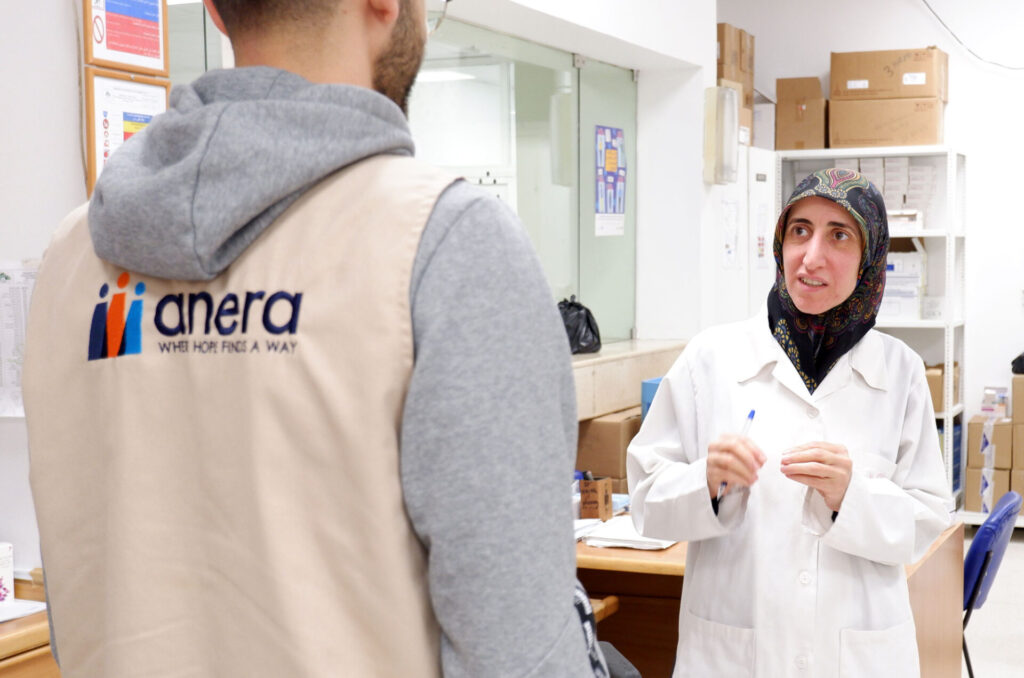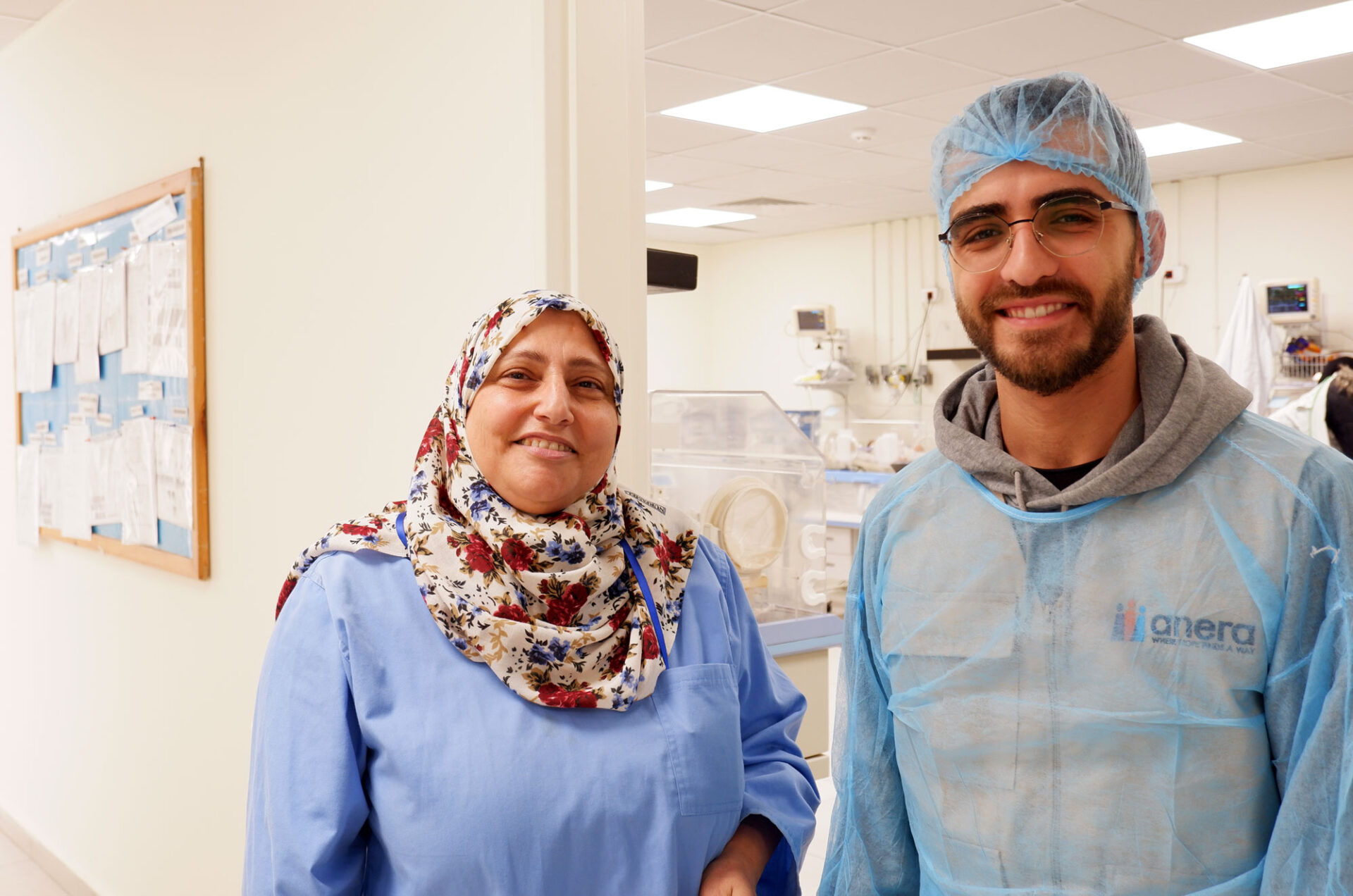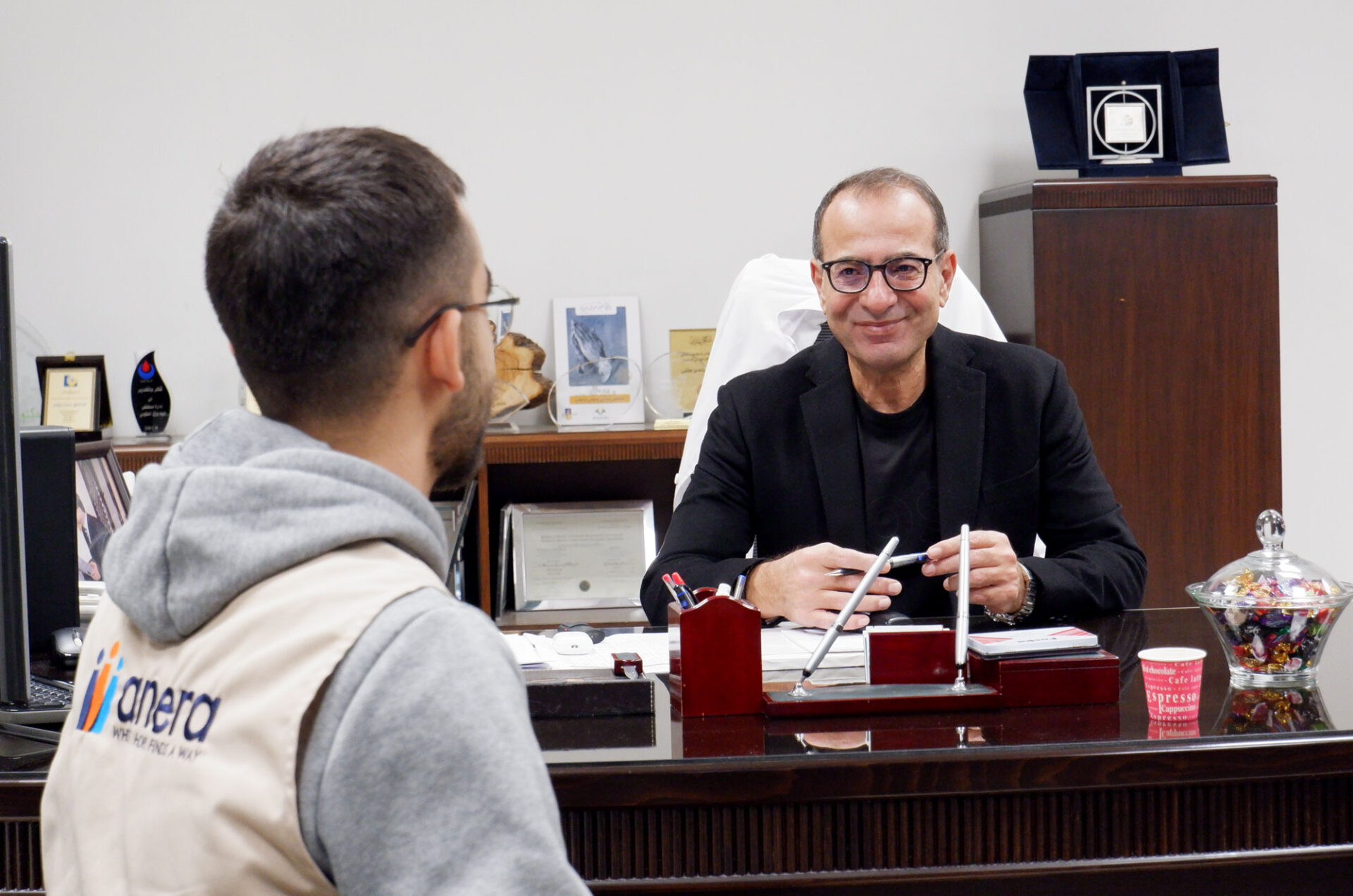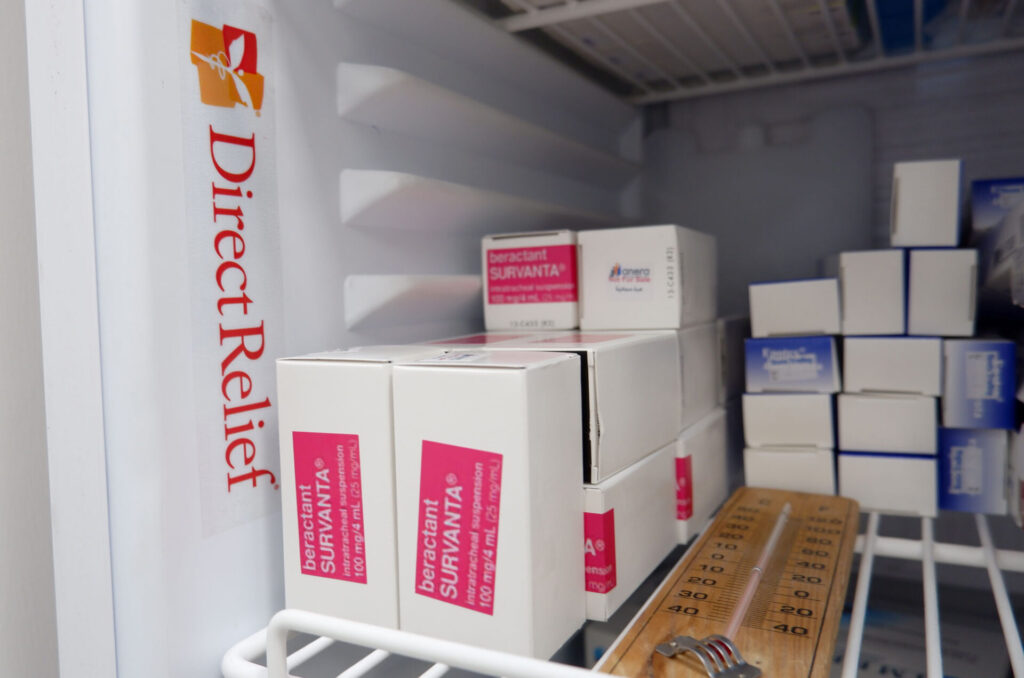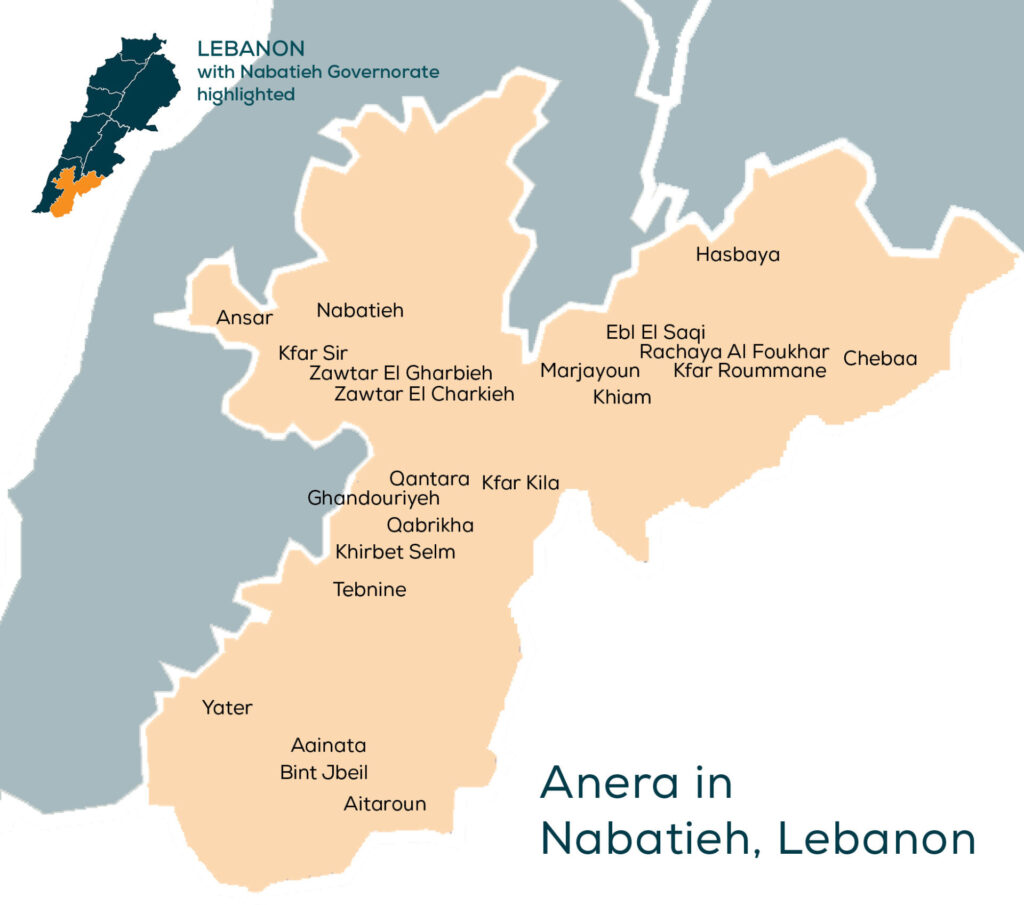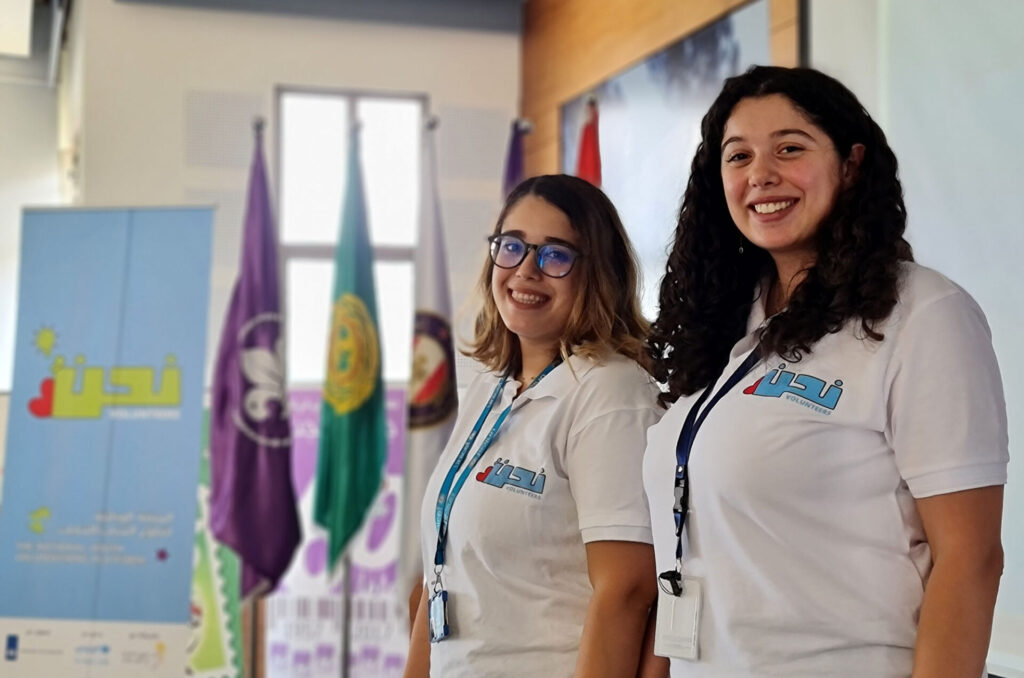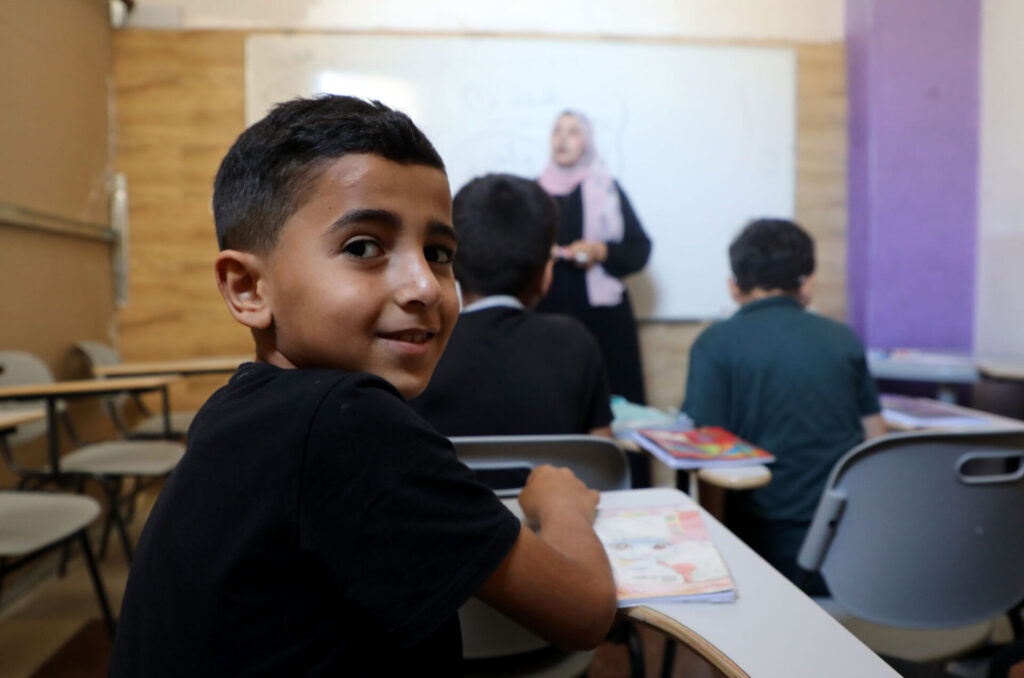Jan, 2024
Medical aid is vital to saving the lives of premature infants in Lebanon
On a Friday afternoon, the director of Nabatieh Governmental Hospital faced a dire situation: three premature babies, born 34 weeks before due, were in urgent need of a life-saving medication called beractant. This medication, a crucial lung surfactant, is vital for preventing and treating respiratory distress syndrome in premature infants.
The director, Hassan Wazni, committed to the well-being of these newborns, attempted to secure the medicine at his own expense. Unfortunately, the supplier informed him that the medication was out of stock and unavailable.
In a race against time, Anera received an urgent call, alerting them to the critical need for the medication. The medical donations team hurried to secure the required vials of beractant through a fast shipment generously donated by Direct Relief. The prompt action by Anera’s medical donations team and the efficient response from partners ensured the timely delivery of the life-saving medication to Nabatieh Hospital.
The impact of Anera's intervention is profound. The donated medication significantly increases survival rates, with a 45% improvement compared to similar alternatives. Premature infants suffering from respiratory distress syndrome now have a chance at a healthier life, thanks to the collaborative efforts of Anera and Direct Relief.


"Parents of the babies in need of the medication are desperate to save their lives, so they might purchase it from the black-market, in which case it is not handled by professionals and might be stored improperly, like merchandise.”
This recent shipment of vials of beractant provides 200 treatments, which will mean life-saving care for at least 75 vulnerable babies from all backgrounds, including Lebanese and Syrian refugees. Anera has distributed the medication to eight hospitals across Lebanon.
This life-saving mission sheds light on a broader issue—reports from public hospitals indicate a shortage of this crucial medication. During a recent field visit, Anera encountered a desperate Syrian father who had borrowed money to purchase a single vial for $400, emphasizing the high stakes involved in accessing this vital medication.
According to Fayrouz Dia, the head nurse at the Neonatal Intensive Care Unit at Nabatieh Hospital, if the beractant is secured from the market or black market, it is highly possible that it is not certified nor stored in ideal conditions, which may cause the medication not to work or even cause harm.
“The worst is that parents of the babies in need of the medication are desperate to save their lives, so they might purchase it from the black-market, in which case it is not handled by professionals and might be stored improperly, like merchandise.”
It is important to highlight that when it comes to a crisis affecting the availability of medications on a country-scale, it impacts everyone, financially challenged people as well as those who are well off.
Two of the premature babies who needed this life-saving surfactant shot are the twins Fatima and Fadi from Nabatieh. Their mom Aida, who owns a small clothing store, tells Anera about her unexpected early labor and the life-threatening condition her twins faced at the dawn of their lives.
“I gave birth to them in the eighth month. I didn't hear either of them cry… and I didn’t know what was wrong.
They needed the medication and it saved their lives. I am grateful it was available at this critical time.”


"They needed the medication and it saved their lives. I am grateful it was available at this critical time.”
Help us save lives.
Every $1 donated ships $115 worth of medical supplies and healthcare. Your support today means we can continue responding to the needs of premature babies and vulnerable families in Lebanon.
The story of Anera's swift response to the shortage at Nabatieh Governmental Hospital serves as a poignant reminder of the importance of collaborative efforts in addressing urgent healthcare needs. In the face of adversity, Anera's commitment to providing timely and life-saving interventions continues to make a significant impact on the health and well-being of our communities in the Middle East.

